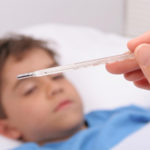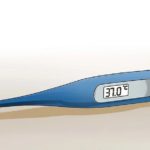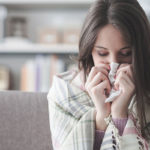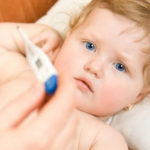1. Recognize and Check for Signs of Fever
To determine if your body has a fever, you can look out for the following signs:
Check your forehead and neck:
This is the initial and most common test for determining if you have a fever. Simply use the back of your hand to check your forehead and neck for a warmer feeling than usual. No thermometer is required for this test.
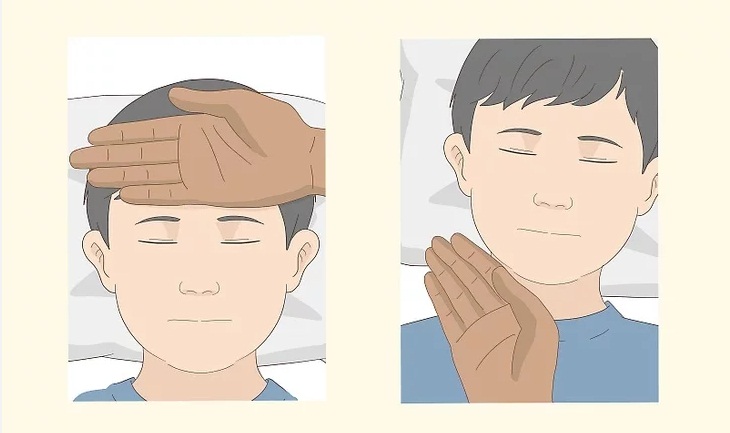
Does the skin look red?
Fever can cause redness in the cheeks and face. However, it may be difficult to notice in people with darker skin.
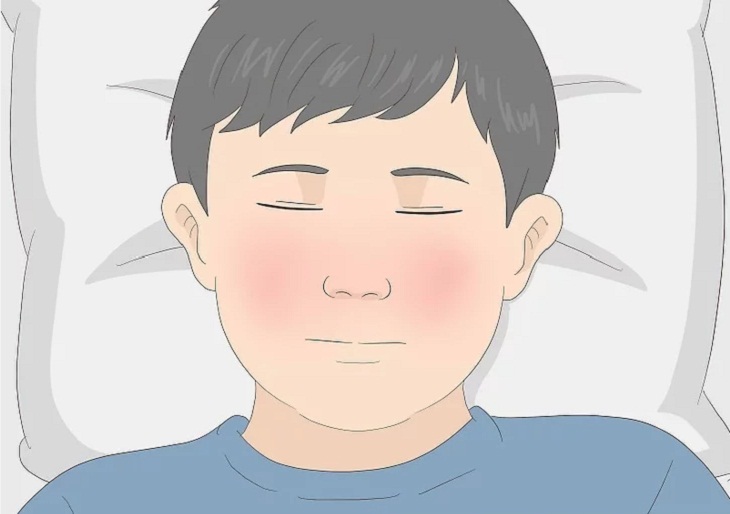
Tired face, not awake
Fever often makes the face look tired and lethargic, especially in young children who may display symptoms such as irritability, excessive crying, weakness, loss of appetite, or refusing to play.
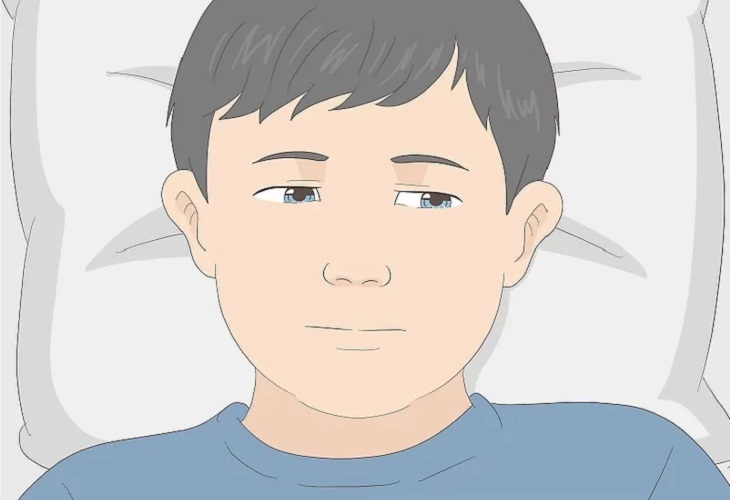
Body ache
Ask the person with a fever if they experience any pain. Fever often causes muscle and joint pain, as well as headaches.
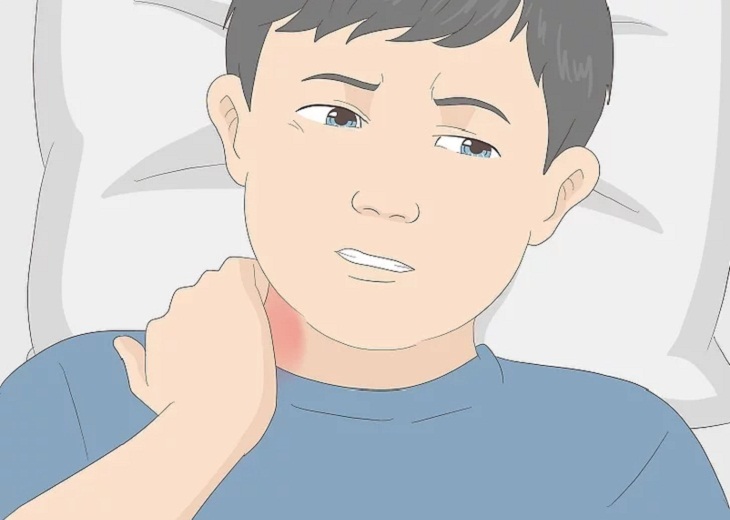
Thirsty
People with fever may feel thirsty or have a dry mouth due to increased fluid loss.
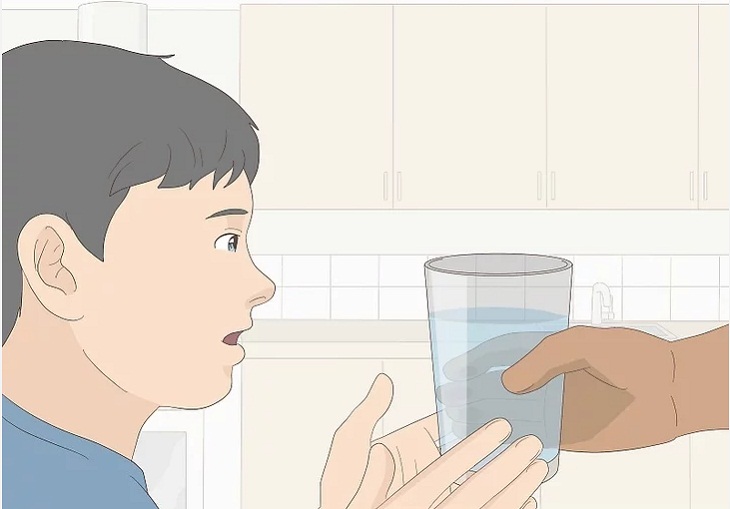
Nausea
Take note if the person feels nauseous. Nausea is a common symptom of fever and other illnesses.
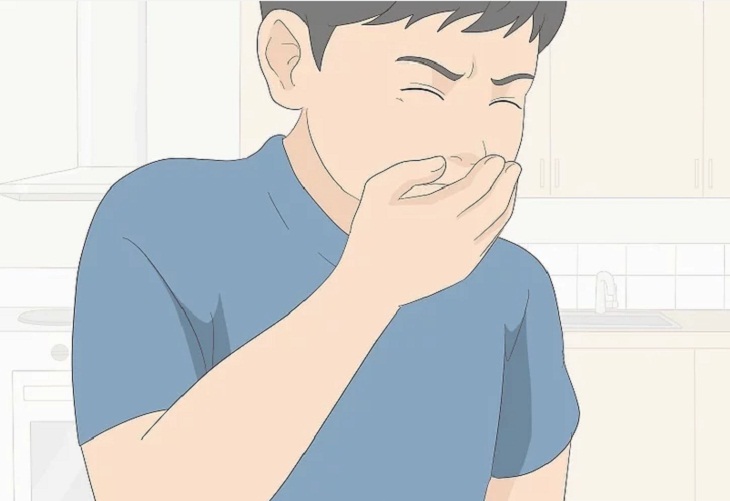
Sweating and shivering
Sweating and shivering are also signs of fever. The person may feel hot and cold at the same time.
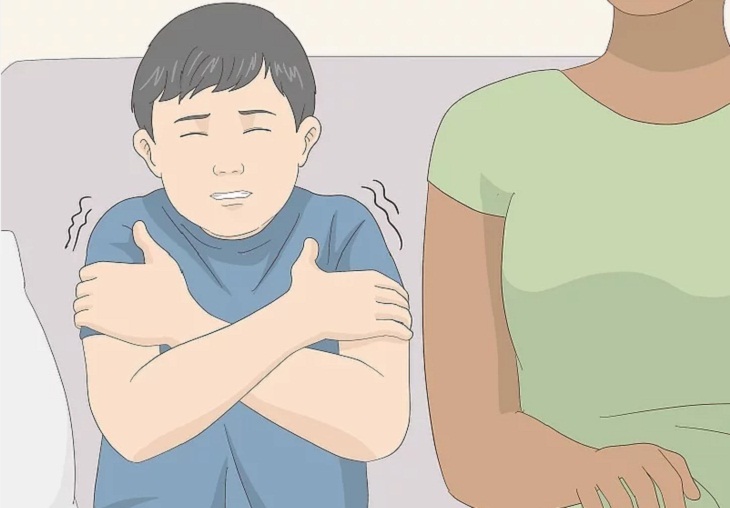
Convulsions
Convulsions often occur in children with fever. If a child experiences convulsions, take the following steps:
- Put the child to bed in an open space.
- Do not try to adjust the child’s body during convulsions or put anything in their mouth.
- Stay still and lie down with the child for 1-2 minutes.
- Return the child to their lying position for sleep.
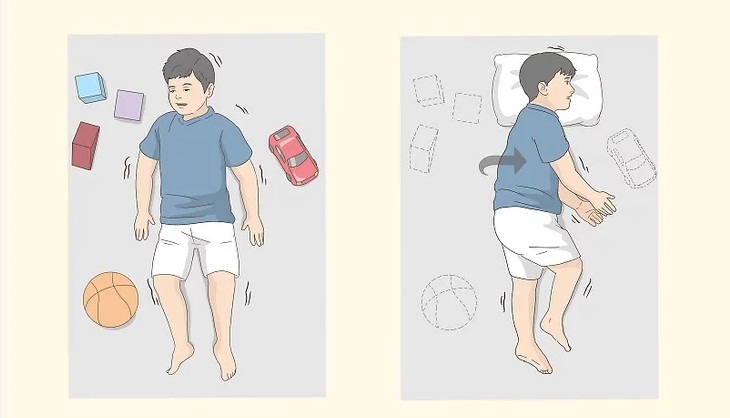
2. Determine the Severity of the Fever
Identifying the severity of a fever will help you take appropriate measures and seek medical attention if necessary.
Seek immediate medical attention if seizures last more than 3 minutes.
If a person experiences a fever and seizures that last for more than 3 minutes, it is a serious sign. Call an ambulance or go to the nearest hospital or medical facility.
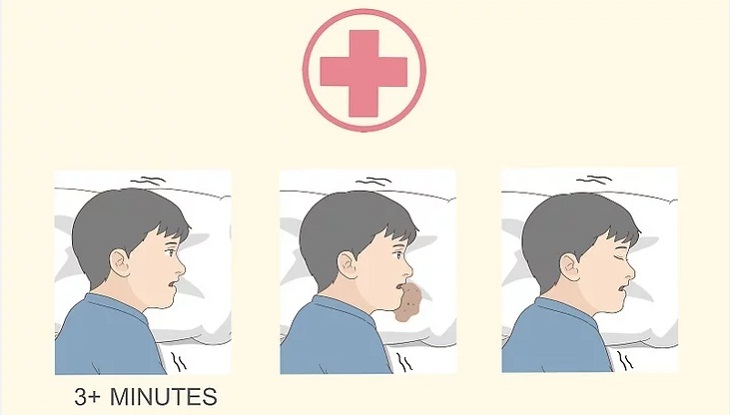
Contact your doctor if fever symptoms persist or worsen.
If a child has a fever above 38 degrees Celsius and the symptoms do not improve, contact a doctor for instructions. Encourage the child to drink plenty of fluids and rest.
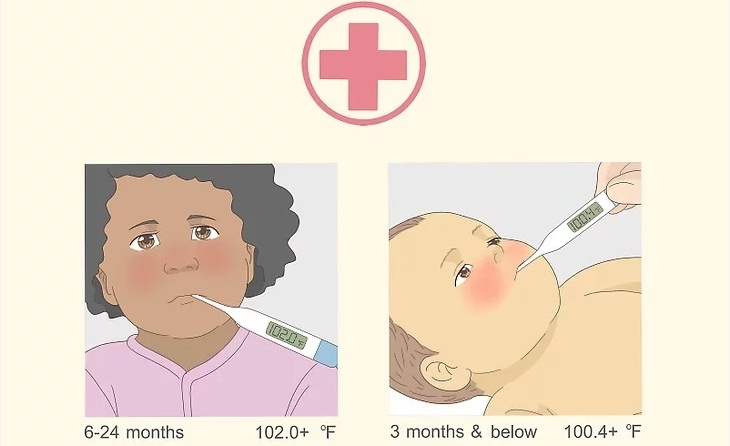
Treat severe abdominal pain, chest pain, difficulty swallowing, and stiff neck immediately.
If a person with a fever experiences severe abdominal pain, chest pain, difficulty swallowing, or stiff neck, seek immediate medical attention as it could be a symptom of a serious condition such as meningitis.
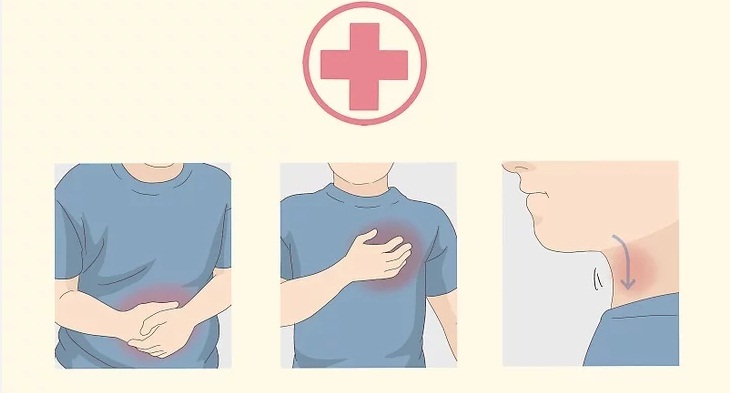
Seek medical attention if there is blood in the stool, urine, or mucus secretions.
Presence of blood in the stool, urine, or mucus secretions is a sign of a more serious infection. Medical attention should be sought.
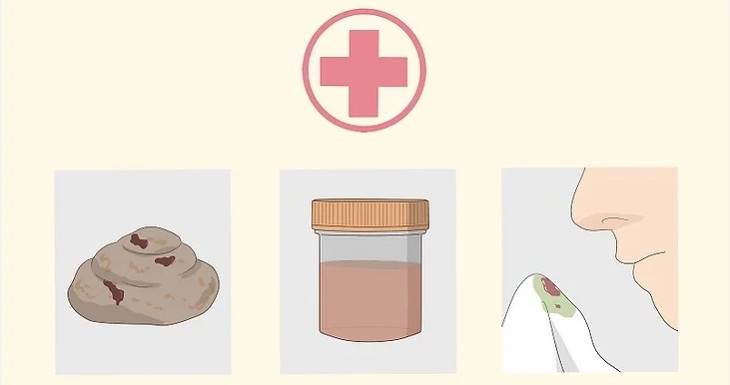
Take extra care if the person’s immune system is weakened.
Individuals with a weakened immune system, such as those with cancer or AIDS, should take extra care when dealing with a fever as it may indicate complications or worsening of their condition.
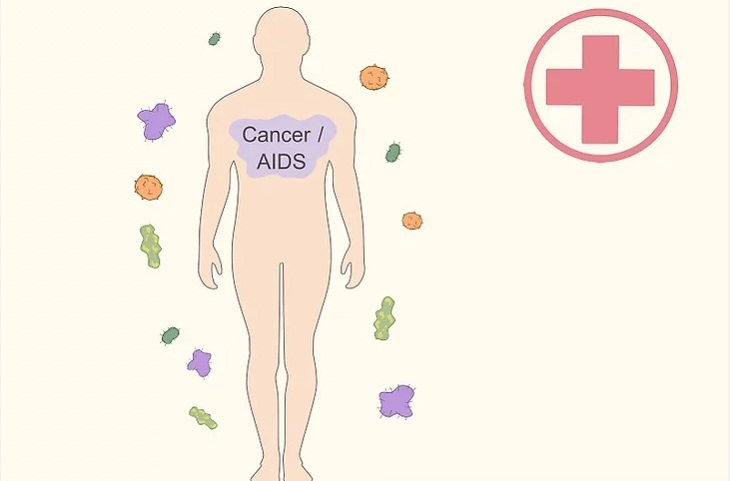
Consult with a doctor about your symptoms and concerns.
If the fever worsens or additional symptoms appear, it is important to consult with a doctor to rule out any underlying conditions or to update medications or vaccinations.
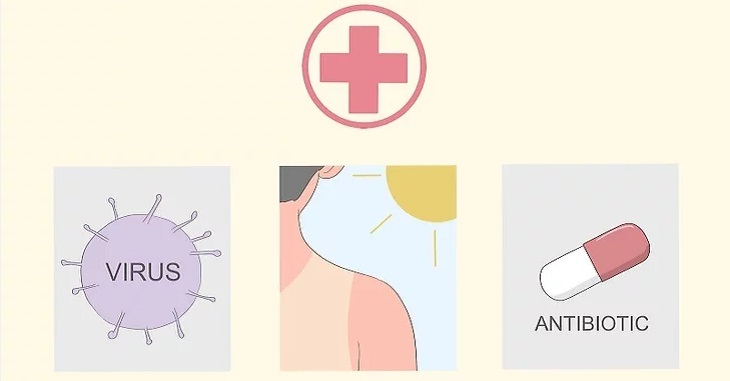
3. Ways to Treat Fever at Home
If the fever is not severe and can be managed at home, the following treatments can be tried:
Fever below 39 degrees Celsius and for individuals over 18 years old:
For mild fevers, adequate home treatment such as rest and plenty of fluids may be sufficient. Medications may or may not be necessary, depending on the individual’s condition. If symptoms persist for more than 3 days or worsen, consult a doctor.
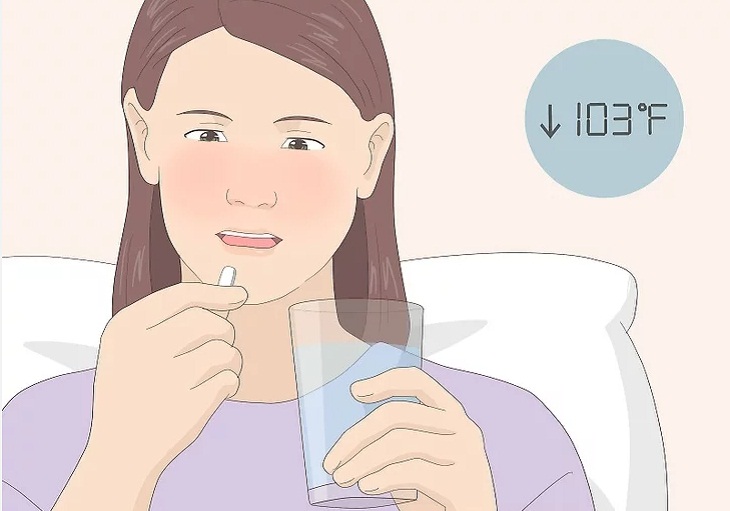
Rest and fluids (if possible):
Resting in a well-ventilated area and staying hydrated can help alleviate symptoms of fever. For more severe cases, medical professionals may administer intravenous fluids.
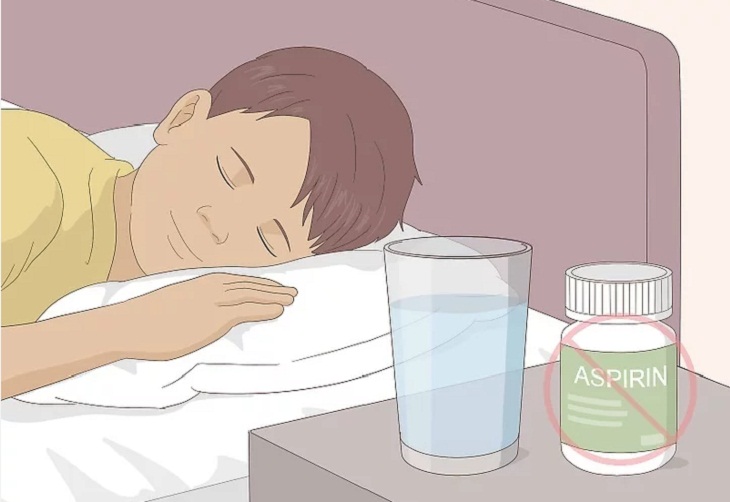
4. Notes When Dealing with Fever
When dealing with a fever, it is important to keep the following points in mind:
Things Not to Do When You Have a Fever:
- Avoid wearing excessive clothing.
- Do not overdress or layer blankets excessively.
- Do not use cold water to lower fever.
- Avoid using inappropriate antipyretic drugs (e.g., aspirin in children).
- Do not use drugs without a prescription or combine different medications without medical advice.

Notes on Caring for Someone with a Fever:
- Allow the person to rest in a well-ventilated area away from direct drafts.
- Use a warm towel to help reduce fever.
- Ensure the person takes the correct dosage of appropriate medication based on age and doctor’s instructions.
- Encourage the individual to consume fluids, such as fruit juices or Oresol salt solution, and provide liquid foods for easy digestion.
- Monitor the person’s temperature and symptoms regularly. Seek medical attention if the condition worsens.

Hopefully, this information has helped you recognize the signs of fever without the need for a thermometer. However, using a thermometer can provide more accurate body temperature readings for better treatment.
The Risk of Underestimating Getting Caught in the Rain
No matter the weather, getting caught in the rain can be an unwelcome occurrence. While one may think that it’s no big deal, it’s important to take measures to get yourself dry and warm after such an experience. Don’t underestimate the effects of the rain – it can be more damaging than one may think.
Tips for Parents on Dealing with Common Ailments in Young Children
Winter can be a particularly hard time for little ones when it comes to keeping healthy. With the decrease in temperature and shorter days, minor illnesses that often affect children can start to present themselves. To ensure your child remains in good health and to learn how to tackle minor ailments efficiently, here are 10 tips for parents to take into consideration.


























